
In 1999, 30 years after the uprising, President Bill Clinton issued the first presidential proclamation declaring Gay and Lesbian Pride Month. Today, the month of June also celebrates the contributions of the lesbian, gay, bisexual, transgender, queer, intersex and asexual community and their allies.
Some of these achievements in the past and more recently include:
- Dr. Sara Josephine Baker, a lesbian, feminist and suffragist, was the first director of New York’s Bureau of Child Hygiene in 1908 and a proponent of understanding and alleviating social determinants of health.
- Barbara Gittings founded the first national organization for lesbians and helped lobby the American Psychiatric Association to no longer classify homosexuality as a disorder.
- Bayard Rustin organized the 1963 March on Washington where Dr. Martin Luther King, Jr. delivered the “I Have a Dream” speech.
- Dr. Rachel Levine, assistant health secretary, is the first openly transgender person confirmed by the U.S. Senate.
- U.S. Secretary of Transportation Pete Buttigieg is the first openly LGBTQIA+ Cabinet member.
- Apple CEO Tim Cook was the first CEO of a Fortune 500 company to come out as gay in 2014 because he believed it could make a positive impact on children and “inspire people to insist on their equality.”
- Raiders defensive end Carl Nassib is the first active NFL player to come out as gay because he believes "representation and visibility are so important."
LGBTQIA+ members and allies in the Walden community are also using their knowledge and passion to strengthen their communities. Here are a few examples:
Dr. Breanne Thomas
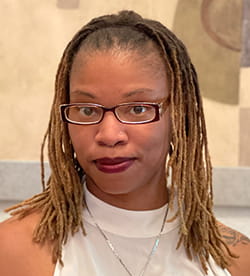
After leaving the military, she began working as a Licensed Professional Counselor for the Central Texas Veterans Health Care System near Fort Hood. Through her work, she has found that counselors may not not have the experience, training and vocabulary to support the active duty and veteran trans community. Many of these clients are outsourced or handed off to her since she is running a support group.
This inspired her dissertation on the “Experiences of Counselors Providing Therapy to Transgender Veterans” in Walden’s PhD in Counselor Education and Supervision program, which she enrolled in after obtaining her MS in Clinical Mental Health Counseling degree. Today, she continues to work at the VA, is a contributing faculty member, and has a practice for adults and veterans who identify as sexual minorities.
“Our trans community is worthy of the same therapeutic approaches, relationships and access as anyone else,” says Dr. Thomas. “As therapists, we owe it to everyone to offer that support.”
Dr. Mark Leggett
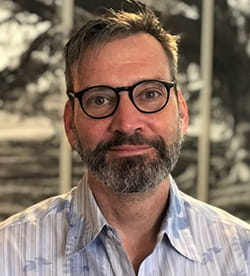
“There are specific skills we teach our students on how to demonstrate empathy and compassion by helping clients feel comfortable and accepted through verbal and nonverbal communication,” says Dr. Leggett. “This includes innovative skill-building tools that immerse students in mock counseling session scenarios.”
He also promotes student involvement in state professional associations to network with colleagues and learn how to best advocate for clients. Dr. Leggett was a member of the board that created the Alabama Counseling Association’s division for lesbian, gay, bisexual and transgender issues in counseling in 2005.
“It was a challenge getting this new division approved. When we finally did, the membership exploded, offering some of the most well-attended workshops and conferences the association had ever seen. The demand for more information and training to help counselors in the state become more culturally competent in serving the LGBTQIA+ community exceeded our expectations.”
When he moved to New Orleans four years ago, he helped reinvigorate a similar division of the Louisiana state association and now serves as its president. He brings that same enthusiasm back to Walden as a faculty liaison to the university’s LGBTQ+/Pride student organization.
Dr. Richard Jimenez
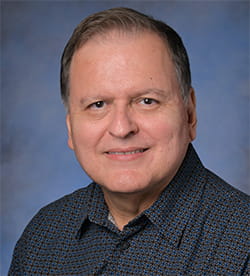
The desire for knowledge that can improve the lives of others drives the Walden PhD in Public Health core faculty member and his collaborative style. He recently completed research on the “Lived Experiences of Asian and Latinx Online Doctoral Students” as part of a Laureate Education David A. Wilson Award for Excellence in Teaching and Learning. He and two colleagues published their results in the American Journal of Distance Education in the hopes of improving recruitment and retention rates for doctoral students from these populations. They found that “Asian and Latinx students experienced a sense of duty and rely on family to earn a doctoral degree” and that both groups would benefit from some synchronous teaching and shorter times for feedback from professors. They presented on the topic at Walden’s Research Conference in October 2020.
In addition to his own research, Dr. Jimenez supports others as an associate editor for Walden’s Journal of Social, Behavioral, and Health Sciences, and he reviews grants, research applications and presentation proposals for the American Public Health Association, the Health Services and Resources Administration, and the Fulbright International Scholars Program.
Chris Taylor
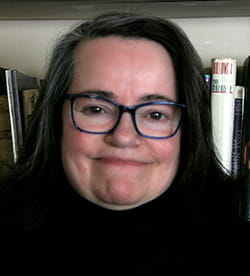
As a college graduate and writer, she continued her advocacy, volunteering for a local community center, an LGBTQIA+ newspaper and a queer writing group. In the early 2000s, as she sought a master’s in adult education, she found online learning and loved it. She added certificates in diversity studies and online teaching and training, as well as an MFA in creative writing.
At Walden, she combines her love for writing and online education as a faculty member in the Office of Academic Support teaching Grad Writing.
“These are the kind of classes I wish I had when I was transitioning from undergraduate to graduate school, especially as a nontraditional and first-generation college student,” says Taylor.
She also facilitates the university’s new Faculty and Staff Pride Employee Affinity Group. The intention is for it to be a safe and inclusive space for members of the LGBTQIAP+ community to meet for networking, support and social connection.
Bettina Straight
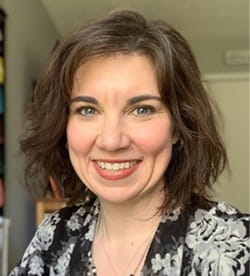
“As soon as someone feels shame, they will also feel resistance,” says Straight. “I strive to include everyone in the conversation in a way that they feel safe enough to experience the discomfort without rejecting it. I have seen the shift in people who have felt outside of an issue as soon as that issue can be made personal. Some people call that an ‘A-ha moment,’ but I often refer to it as their ‘Whoa moment’ because of how rattling it can be.”
Prior to joining Walden as director of diversity, inclusion and organizational effectiveness, she worked in healthcare, focusing on leadership and culture, and in student life at traditional universities. As a coach and trainer, she has partnered with state agencies, corporations and professional associations to increase awareness and create positive behavioral change. Whatever setting she finds herself in, her approach is a balance of respect, humor and personal insight.
“What I hope to hear is someone say, ‘Wow, I hadn’t thought of it that way.’ Therein lies the opportunity for growth and change.”
On June 29, she is participating in a roundtable discussion, “Culturally Competent Care for Members of the LGBTQIA+ Community,” with University of Maryland Clinical Instructor Lee Westgate and Walden faculty member Dr. Mark Leggett.
LGBTQIA+ ALLIES
Dr. Cynthia Tucker
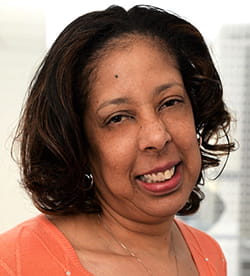
For the last 15 years, she has focused on prevention and community partnerships as a leader at the AIDS Foundation Chicago. Colleagues enrolled at Walden encouraged her to enroll in the Doctor of Public Health (DrPH) program, and a CDC-funded program inspired her dissertation, “Social Support and HIV Among Young Transwomen of Color.” She found that family, friends and caregivers should be built into programs for transwomen because it can impact whether they discuss safer sex and HIV testing with a new partner.
During her education journey, Dr. Tucker was accompanied by her husband, Rodney Pruitt, a Walden PhD in Public Policy and Administration student and Chicago schools teacher for nearly 20 years.
“We did a lot of our courses and residencies together, and we even got married during that time,” says Dr. Tucker. “He was my main support and really pushed me to complete my program. I’m hoping to do the same for him.”
Dr. Christie Jenkins
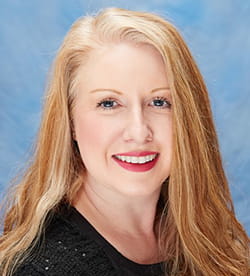
“My vision is ‘liberating, celebrating and healing our otherness,’ which speaks to not only the LGBTGEQIAP+ community, but also to the allies,” says Dr. Jenkins. “We all can remember a time when we were not welcomed, understood or even hated. It is important that we all support each other and grow and learn together. I hope to bring folks together to draw on each other’s strengths and celebrate our ‘otherness.’”
Dr. Jenkins has more than 25 years of experience in social services fields, including over 16 as a counselor. She is also an advocate in state government for the profession of counseling and the diverse clients they serve. She began her career working in domestic violence safe houses and has served as the CEO, associate director and supervisor of the Family and Child Abuse Prevention Center and The Children’s Advocacy Center in Ohio. For her work with abused populations, she was recognized by Ohio’s governor, House of Representatives and Lucas County, where she lives. In 2017, she received the Ohio Counseling Association’s Public Policy and Legislation Award.
This month she is presenting on “Conquering IPV Disparities for the LGBTGEQIAP+ Community” for Walden’s Leading Lights in Counseling Series and moderating Walden’s Talks for Good on “Youth Mental Health Post-Covid and Strategies for Support.”



